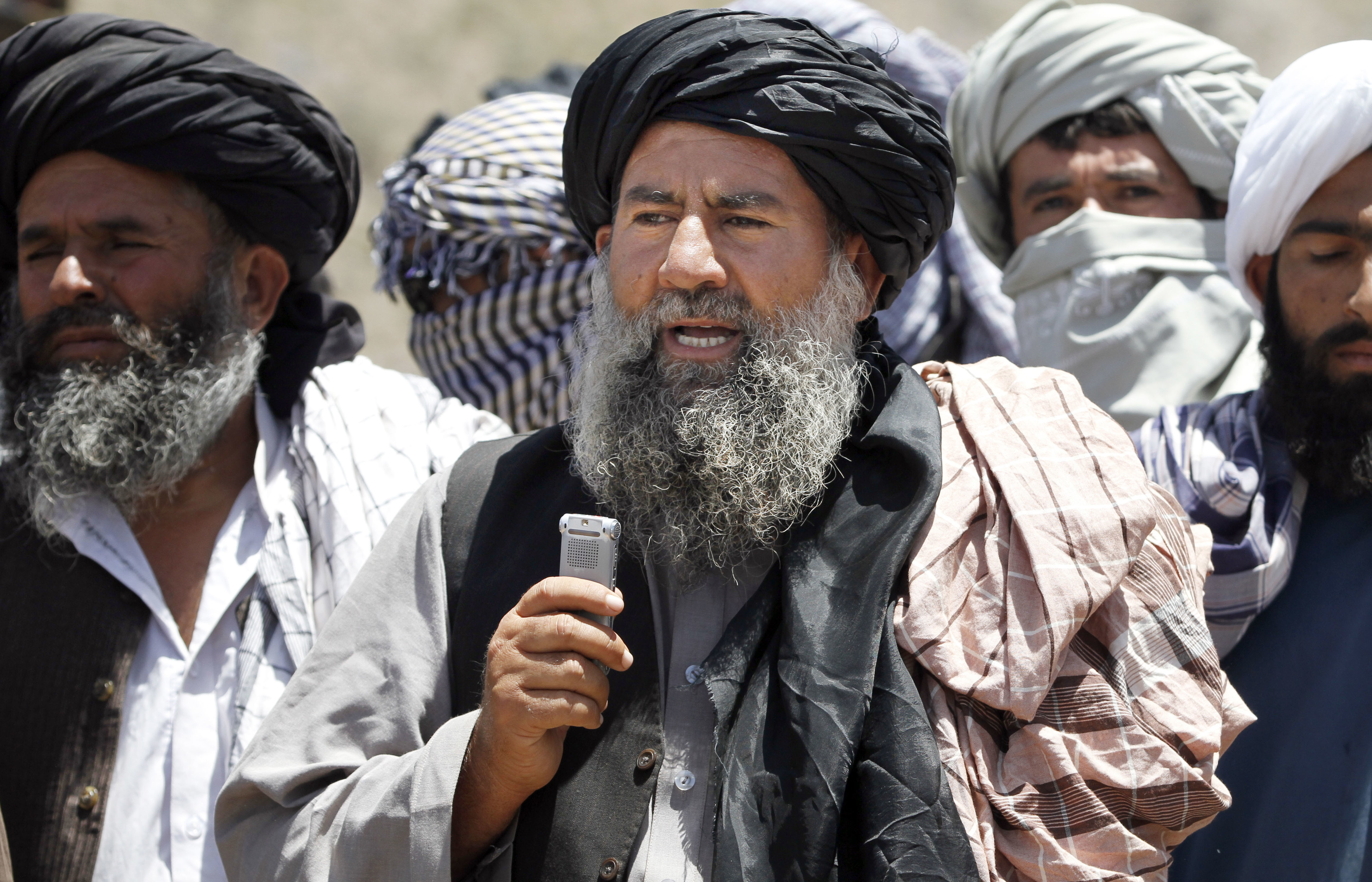Ali Ragab
Mullah Abdul Manan Niazi, deputy leader of the Mullah Muhammad Rasul splinter Taliban group, was died in the hospital from his wounds on Saturday, May 15.
Born in Herat, Niazi was injured in an internal clash with the main Taliban movement in the Guzara district in western Afghanistan on Tuesday, May 11.
Niazi worked as a spokesman for the movement and then as governor of the Herat and Balkh states in Afghanistan during the Taliban regime in the 1990s.
Previously the deputy head of the Taliban Shura Council, Niazi broke away from the movement in 2015 after the death of Mullah Omar and the selection of Mullah Akhtar Mohammad Mansour as Omar’s successor, and then he became the deputy leader of the Taliban splinter wing of Mullah Muhammad Rasul.
Massacres against Shiites
Niazi was accused of participating in the issuance and execution of the order to kill Iranian diplomats at the consulate of Mazar-i-Sharif in 1998.
Then, he was involved with forcing the Hazara people to deny Shiism or leave Afghanistan or be killed. Some analysts also believe he participated in the bombings that occurred at warehouses and fuel carriers at the Islam Qala and Herat crossings.
Human Rights Watch and several Hazara political leaders say Niazi killed thousands of Hazaras in Balkh while he was the governor.
Strongman in western Afghanistan
In August 2009, Hafiz Ahmadullah, brother of Taliban leader Mullah Haibatullah Akhundzada, was killed in an explosion in Quetta, Pakistan. At the time, the Taand website quoted Niazi as saying that the retaliatory attack was carried out by Mullah Muhammad Rasul’s group in retaliation for the recent Taliban attacks led by Akhundzada.
Niazi, who was leading the war in Herat and Farah, was able to maintain power in the region largely in favor of Rasul. Also, before the Mujahideen government fell to the Taliban, Niazi was the spokesman for the movement.
Refused peace talks
Niazi was the most prominent leader in the movement that rejected negotiations with the Afghan government. He always saw weapons as the solution to confronting the Kabul governments, as well as expelling foreign forces from Afghanistan.
Iran
Niazi possessed influence in the strategic city of Herat, close to the Iranian border, and he was the most prominent leader rejecting Iran’s influence in Afghanistan, having been concerned about Tehran’s policies.
He repeatedly accused Iran of interfering in Afghanistan, considering Tehran to be a source of strife and the engine of conflict in Lebanon, Iraq, Syria and Yemen.
“The great wars it sees are due to strife in Iran. The Iranian government has established the Fatemiyoun Brigade, an Afghan Shiite militia from the Hazara, and now wants to start a civil and religious war in Afghanistan. I tell them this is a wrong idea. They must withdraw their militias from Afghanistan, otherwise we will destroy them all,” he said.
Niazi also believed that the Iranian Revolutionary Guards are using Fatemiyoun fighters to threaten Afghanistan, adding that “the Fatemiyoun have no place inside Afghanistan. But who is nurturing and feeding them? They are fed by the Afghan government. Many ministers in Kabul today encourage the Fatemiyoun.”
In a previous statement to IranWire, Niazi said that there are large camps in the provinces of Balkh, Bamiyan, Herat and Kabul for Fatemiyoun members, adding, “They have established large centers and they have regular programs that give them [salaries]. The Fatemiyoun are present in Balkh, Bamiyan, Dasht-Burshi, Kabul and Herat.”
Niazi’s death may make a profound difference to the Taliban’s position in western Afghanistan, as the Akhundzada branch of the Taliban will fully control all of western Afghanistan.







































admin in: How the Muslim Brotherhood betrayed Saudi Arabia?
Great article with insight ...
https://www.viagrapascherfr.com/achat-sildenafil-pfizer-tarif/ in: Cross-region cooperation between anti-terrorism agencies needed
Hello there, just became aware of your blog through Google, and found ...